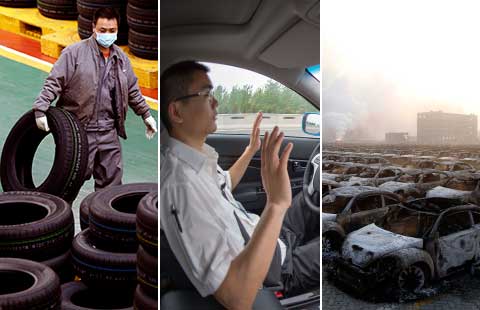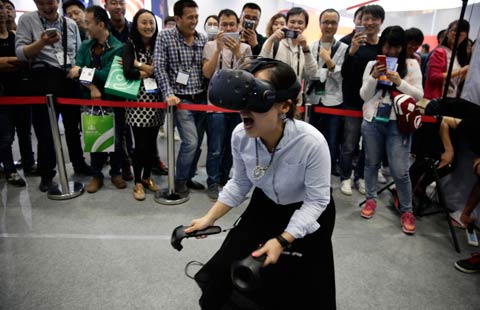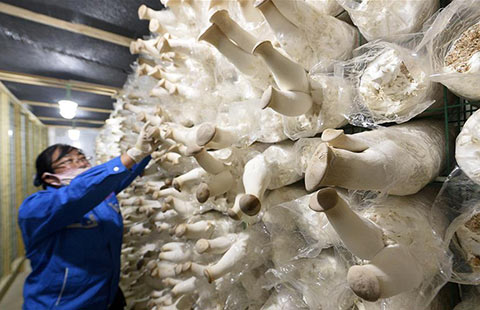Time to speed up the race for green cars
By Zhu Qiwen (China Daily) Updated: 2016-04-28 07:59The subsidy scandals and the subsequent slowing of sales growth, however, will cast a shadow on the green vehicle sector in China, which is caught between the need to sustain the development of the world's largest auto market and the urgency to cut emissions from cars that have been choking major cities.
As such, Chinese policymakers have to take effective measures to increase the share of new-energy cars in the domestic auto market, which saw 6.53 million vehicles being sold in the first quarter of the year. Since less than 1 percent of the cars in China are electric, the sales of green cars have to increase dramatically to help build a low-carbon future.
Therefore, policymakers have no choice but to strengthen supervision on government subsidies for electric cars which will allow dubious claimants to be punished and real pioneers to receive the benefits. They should also welcome competition from Western manufacturers like Tesla if they consider the amazing rise of a number of world-class smartphone makers in China since the introduction of Apple's iPhones as a positive sign.
Moreover, policymakers should double their efforts to boost something they are good at-infrastructure investment-this time to help dramatically increase the use of electric cars.
The sales of green cars have been disproportionately higher than the installation of recharging facilities in recent years and that has dampened consumers' enthusiasm to buy new-energy vehicles.
That more recharging stations are being installed in public places as well as residential communities in Beijing is a clear sign that local authorities are determined to see the expansion of the new-energy vehicle sector. But the failures of previous infrastructure programs such as installation of electronic information billboards at bus stations and useless parking meters along the roads require the authorities to exercise caution while investing in public infrastructure.
Nevertheless, the very importance of green cars for the city's, the country's and global efforts to combat climate change should make the investment in recharging facilities worthy of the cause that global leaders agreed to fight for on Earth Day.
The author is a senior writer with China Daily. zhuqiwen@chinadaily.com.cn
- Tough love can nurture development of green cars
- Beijing needs more green cars
- Green cars can drive forward green economy
- China calls on automakers to list green cars
- Beijing gives greener light to green cars
- BYD 'green' cars get go-ahead for Beijing, Shanghai roads
- Stronger push for 'green' cars
- 28 cities, regions to promote green cars
- Chinese tech company Lenovo's LatAm president highlights Argentina's potential
- Chinese vice premier urges better use of agricultural funds
- President Xi stresses innovation to bolster economy
- Major molybdenum firm in DRC purchase
- Mercedes-Benz showcases latest technologies at CES Asia
- British firms eye more opportunities as China updates manufacturing sector
- 'China can tackle online finance fraud through innovation, technology'
- Curbs on backdoor listing valuations 'being considered'

















